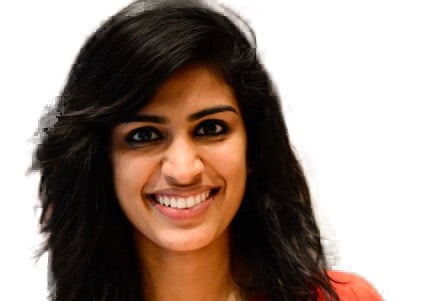Hejaze: Why I will confront sexual harassment

February 27, 2015
I was walking briskly back to our car from a mall basement in Pakistan. My parents followed at their own pace. Two men walked by, and one made a lewd comment. I pretended I didn’t hear and kept walking, expressionless.
That bothered me. Ignoring the comment bothered me more than the comment itself. “Why did I not confront him?” I asked myself, as I walked up the stairs.
I didn’t want to bother. It would’ve been a big fuss, and cultured people, as I’ve been taught, don’t create a fuss. They ignore impropriety.
As I walked down the road, a man called out at me in a drunken voice.
I stopped, turned and looked at him. He was slightly shaking his head, looking straight at me. I glanced over to Dad who’d also stopped in his steps, staring at the man. Dad had the “what-the-eff” expression on his face.
The man looked at Dad, terrified. And then the 10-minute berating by Dad started. A lot of people gathered. I moved away. That man was getting way more than he bargained for.
I had to hide my smile. A tiny part of me felt Dad said way too much, but a big part of me was pleased.
“To clean dirt sometimes, you have to get dirty,” I thought to myself.
That’s when I decided to confront people who felt it was acceptable to say whatever they wanted and do whatever they thought was okay.
I shared this thought with my sister-in-law when I came home that day. The public makes fun of the victim in these cases, she said, if you take a stand. She described an incident where a man inappropriately touched a woman, and that woman turned and landed a slap right across his face.
“But then the guy wouldn’t dare to do that to anyone else,” I said. She agreed.
My oldest sister always said men in Pakistan stared so much because they were sexually frustrated. Men in other countries had more sexual freedom, which helped. She used Canada, where she’s been living for the past eight years, as an example.
I believed in her theory until I had the chance to go to Cuba last summer for a political science course. I noticed men in Cuba had all the sexual freedom in the world, but that didn’t stop them from winking, blowing kisses and passing sexually aggressive comments at me.
I interviewed a waitress at La California Restaurant for my final paper. A line of chefs stared at me the whole time.
“Why do they stare so much?” I asked the waitress.
“It’s their way of saying, ‘You’re so beautiful. I cannot take my eyes off you,’” she said.
I shared this with my class over dinner that night, as way of coming to terms with it. Sean Burns, our political science professor, said it was “bulls—.”
“The stares were because the men weren’t pressured by a women’s rights movement to be more discreet in public,” he said later.
Even here in Qatar, sexual harassment is prevalent.
Last summer, I took an exchange student from Georgetown University School of Foreign Service in Qatar to the ritzy Villaggio Mall to help her shop.
We were getting groceries when someone or something touched my behind. I didn’t even turn. Whatever touched me, I wanted to give that thing the benefit of the doubt. Maybe it was an accident, I thought to myself.
As I looked at the men in thobes, the traditional Qatari dress, walk ahead of me, they turned and smirked.
I was angry, and even when I knew it wasn’t an accident, I didn’t do anything about it. I chose to be “civil” rather than stand up for myself. Growing up, I wasn’t taught the art of confrontation. I always saw everyone, including my sisters, just ignore sexual harassment.
But I’m not doing that anymore. Two weeks ago, when I was in public, a man was staring at me and twice he passed comments I couldn’t understand. I only understood the word “nice” being used.
“What? Are you saying something to me?” I asked, clearly ready to smash his face.
“No, I’m not saying anything,” he replied.
And that felt good. He could harass me until I confronted him about it, but not after.
I have witnessed sexual harassment in Pakistan, India, Qatar and Cuba, and I’ve only ever been to six countries. For two of them, I probably didn’t stay long enough to witness or experience it. It’s one of the reasons I haven’t yet found a country that I can call home, where I can feel completely safe. And I don’t see how pretending I can’t hear any vulgar comments changes that.
Rhytha Zahid Hejaze is a sophomore studying journalism at Northwestern University in Qatar. She can be reached at [email protected]. If you would like to respond publicly to this column, send a Letter to the Editor to [email protected].

